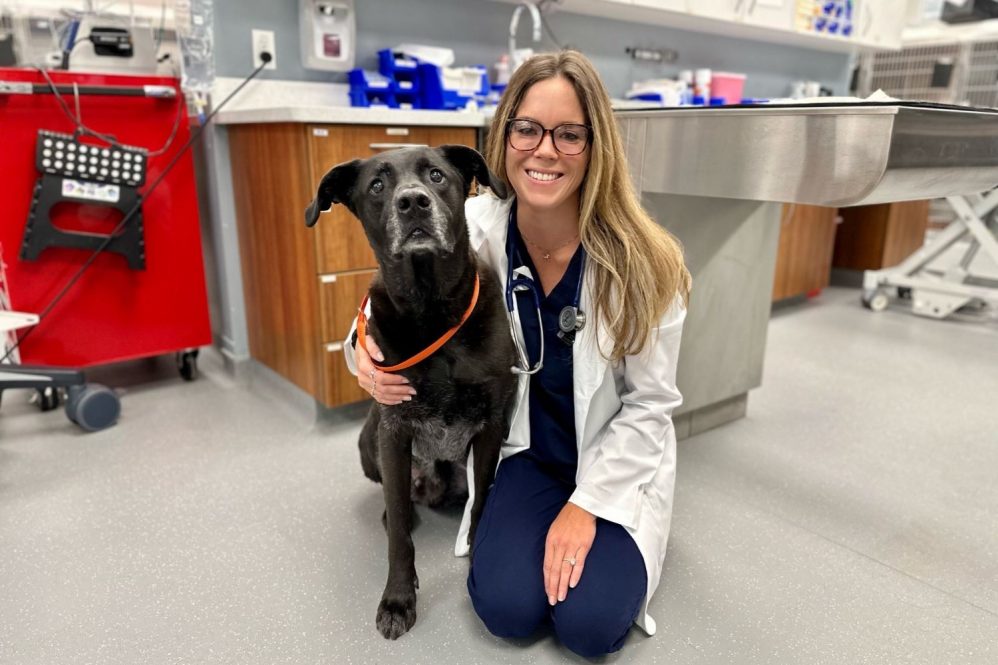Liz Underwood ‘16 (CAHNR) always knew she wanted to be a veterinarian. By the time she was five, Underwood recalls neatly lining up her beloved stuffed animals, displaying an early proclivity for organization.
“Being a vet was always in the back of my mind for years and years and years,” Underwood says.
When looking at colleges, Underwood wanted a school with a strong animal science program. UConn immediately stood out thanks to the diversity of the animals that students could work with like dairy cows, sheep, poultry, and horses.
“What I loved about UConn was they had everything under one roof,” Underwood says.
The small size of the Department of Animal Science at UConn allowed Underwood to experience a close-knit college community while benefitting from the resources of a large university.
“That combination of community and excellence was so special to me,” Underwood says.
At UConn, Underwood was consistently encouraged and supported by faculty who pushed her to succeed.
It’s a very rewarding job. And it all started at UConn. — Liz Underwood '16 (CAHNR)
She recalls how Professor Robert “Bob” Milvae, who passed away in 2022, brought his enthusiasm to the classroom, helping students get excited about the material as well.
“His love of teaching and his students, wanting all of us to succeed, and always taking extra time to go over concepts we didn’t understand was something that really made a difference for my,” Underwood says.
Her advisor, Professor Steve Zinn, provided Underwood with support throughout her academic career, but especially as she went through the demanding vet school application process.
“He really pushed us to do the best that we could even if we didn’t think we could, which I think not a lot of educators do,” Underwood says.
The range of rigorous courses, Underwood took at UConn, covering topics like anatomy and reproduction, positioned her for her next step at St. George’s School of Veterinary Medicine.
“Looking back, I remember walking into my first semester of classes and really being set up for success,” Underwood says. “I think the animal science program is phenomenal, and the material they cover is really thorough. It really is something you can’t get at a lot of other institutions.”
Underwood now works as a small animal emergency veterinarian at Gulf Coast Veterinary Specialists in Houston, one of the largest private practices in the Southern United States.
Underwood treats mostly dogs and cats and occasionally exotic pets as well through walk-ins and referrals from general veterinarians and other specialists.
Underwood always knew she wanted to be a veterinarian, but didn’t know what specialty she wanted to pursue. In vet school, she found herself enjoying everything she was exposed to.
“I really enjoyed it all, which should have been my first hint that I would like emergency because that’s what emergency is – you’re dealing with a lot of different things,” Underwood says.
After graduating in 2016, Underwood did an internship at a private practice in New Jersey that provided her with more emergency experience, making her realize that was the specific path she wanted to follow in veterinary medicine.
Underwood sees “a bit of everything” on any given day, from autoimmune diseases, trauma, oncology, and surgery. Her practice also helps provide critical care for animals with multiple conditions that require non-standard case management.
“The most rewarding are the trauma cases that you are able to stabilize, especially when they are very critical,” Underwood says. “It’s a very rewarding job. And it all started at UConn.”
Follow UConn CAHNR on social media



